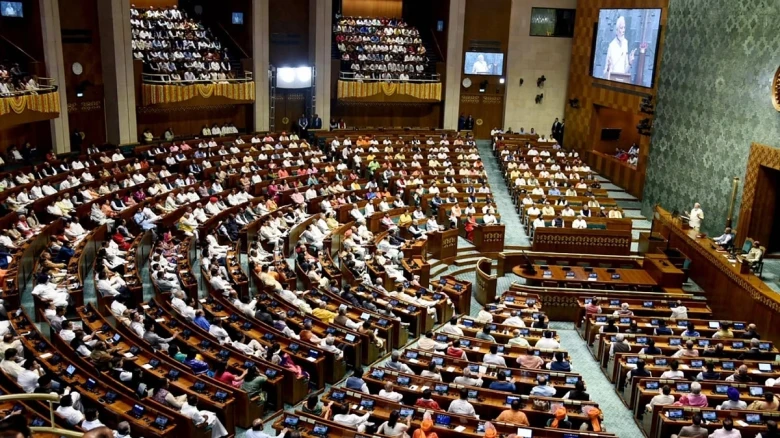The Parliamentary Standing Committee on Home Affairs, led by BJP MP Brijlal, addressed the criticism leveled against the adoption of...
Digital Desk: A recent decision by a parliamentary panel regarding the Hindi names given to three proposed criminal laws has sparked a heated debate among political circles, igniting discussions on linguistic inclusivity and constitutional adherence.
The Parliamentary Standing Committee on Home Affairs, led by BJP MP Brijlal, addressed the criticism leveled against the adoption of Hindi names for the proposed legislations: Bharatiya Nyaya Sanhita (BNS-2023), Bharatiya Nagarik Suraksha Sanhita (BNSS-2023), and Bharatiya Sakshya Adhiniyam (BSA-2023). The committee's scrutiny focused on the constitutional aspect, particularly examining Article 348 of the Indian Constitution, which mandates the use of the English language in Supreme Court proceedings, high courts, Acts, Bills, and legal documents.
In their report submitted to the Rajya Sabha, the committee emphasized that since the text of the laws is in English, the application of Hindi names does not contravene Article 348. "The committee is satisfied with the response of the Ministry of Home Affairs and holds that the name given to the proposed legislation is not in violation of Article 348 of the Constitution of India," the report stated.
However, this conclusion faced opposition from several quarters, including senior Congress leader P Chidambaram and Tamil Nadu's ruling party, DMK. Chidambaram raised concerns about the rationality behind assigning Hindi names to bills drafted in English, emphasizing that names should align with the language of drafting.
DMK, through its chief MK Stalin, vehemently opposed the adoption of Hindi names, labeling it as "linguistic imperialism" and suggestive of "recolonization in the name of decolonization."
The Madras Bar Association echoed similar sentiments, branding the usage of Hindi titles as unconstitutional, an assertion supported by DMK MP Dayanidhi Maran's objection to the Hindi nomenclature, citing concerns about the country's multilingual nature.
In response, Union Education Minister Dharmendra Pradhan dismissed these objections as "petty politics" and cautioned against actions that could undermine the unity of the nation.
Union Home Secretary Ajay Bhalla attempted to assuage the concerns raised by opposition MPs during the panel's discussions. Bhalla reiterated that since the bills and their texts are crafted in English, they comply with the stipulations of Article 348.
The deliberations continue to draw attention to the intersection of language, legislation, and constitutional adherence, with proponents and opponents polarized over the use of Hindi nomenclature for laws primarily drafted in English.
As this debate persists, it underlines the complexity of linguistic diversity within India and the ongoing quest for a balance between cultural representation and constitutional conformity in legislative practices.

Leave A Comment